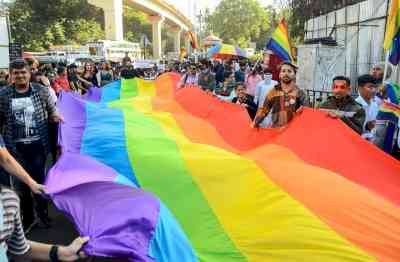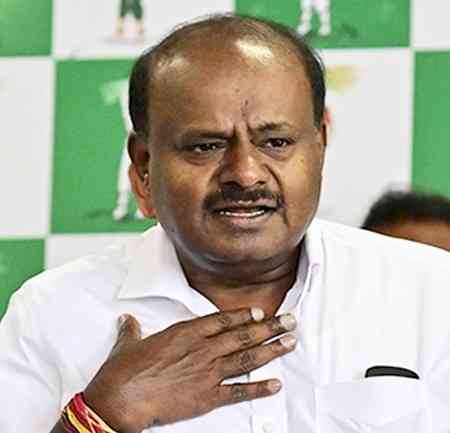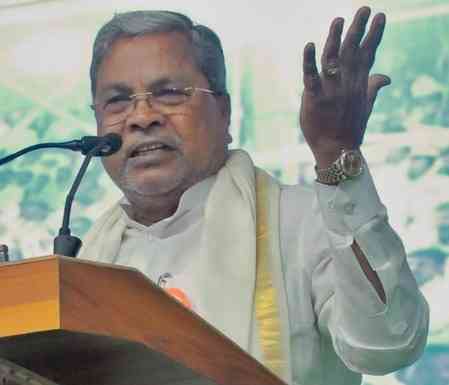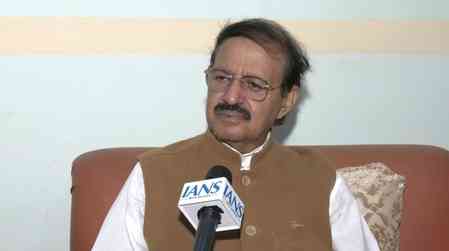'Very seminal issue': SC refers pleas for same-sex marriage to constitution bench
The Supreme Court on Monday referred a batch of petitions seeking recognition of same sex marriage to a constitution bench for final hearing, noting it is a "very seminal issue" against the backdrop of interplay of various rights including of right to live with dignity.

New Delhi, March 13 (IANS) The Supreme Court on Monday referred a batch of petitions seeking recognition of same sex marriage to a constitution bench for final hearing, noting it is a "very seminal issue" against the backdrop of interplay of various rights including of right to live with dignity.
A bench headed by Chief Justice D.Y. Chandrachud and comprising Justices P.S. Narasimha and J.B. Pardiwala said: "It is a very seminal issue", while scheduling the matter for consideration before a five-judge bench on April 18. The proceedings will be live streamed.
The bench said it will invoke Article 145 (3) of the Constitution and have this matter decided by a constitution bench, comprising five judges.
Solicitor General Tushar Mehta, representing the Centre, contended that the right to love or right to express one's love, irrespective of gender of other person, is completely different from what the court would find the mechanism to give recognition or to give a sanctity by way of an institution called marriage.
He stressed that freedom of choice has already been recognised by the apex court and no one was interfering with those rights but conferring the right of marriage fell in the exclusive domain of legislature.
Mehta further contended that if the marriage is recognised between same sex, then the question will be of adoption, then the Parliament, which represents the will of the people, will have to examine the psychology of child, who has seen either two men or two women as parents, and has not been reared by a father and a mother, and clarified that he is not giving any judgement.
He added that Parliament will have to debate and take a call, in view of societal ethos and several other factors, whether same-sex marriage needs to be recognised.
At this juncture, the Chief Justice told Mehta: "The adopted child of a lesbian couple or a gay couple does not have to be necessarily a lesbian or gay. It depends on the child, may or may not."
Senior advocate K.V. Viswanathan, representing one of the petitioners, submitted that the matter here is right to life under Article 21 and right to expression under Article 19 of the Constitution. He stressed that denial of the right to marry is denial of the right to expression and dignity, which are natural rights to individuals.
Senior advocate Neeraj Kishan Kaul, representing some of the petitioners, submitted that the Special Marriage Act recognised marriage between two persons. He argued that in the Navtej Johar (decriminalisation of Section 377 of IPC), the apex court had said the right to life included the right to marriage, procreation, and even sexual orientation.
Senior advocates Mukul Rohatgi, and Saurabh Kirpal, briefed by a team of advocates from Karanjawala & Co, representing some of the petitioners, argued that the petitions pertained to issues of fundamental rights.
Senior advocate A.M. Singhvi said the right to marry cannot be withheld to a class of persons solely on the basis of their sexual orientation.
Mehta submitted that the apex court in Navtej Johar had already clarified on the issue of marriage of same sex couples and added that the question of stigma etc has already been taken care of.
The Centre, in an affidavit, contended that legal validation of same-sex marriage will cause "complete havoc" with the delicate balance of personal laws in the country and in accepted societal values. It stressed that legislative policy recognises marriage as a bond only between a biological man and a biological woman.
The Central government said that living together as partners and having sexual relationship by same sex individuals, which is decriminalised now, is not comparable with the Indian family unit - a husband, a wife, and children born out of the union - while opposing pleas seeking recognition of same-sex marriage. It stressed that same-sex marriage is not in conformity with societal morality and Indian ethos.
In the affidavit, the Central government said the notion of marriage itself necessarily and inevitably presupposes a union between two persons of the opposite sex. This definition is socially, culturally, and legally ingrained into the very idea and concept of marriage and ought not to be disturbed or diluted by judicial interpretation, it added.
The Centre's response came on a batch of petitions challenging certain provisions of the Hindu Marriage Act, Foreign Marriage Act and the Special Marriage Act and other marriage laws as unconstitutional on the ground that they deny same sex couples the right to marry or alternatively to read these provisions broadly so as to include same sex marriage.


 IANS
IANS 








